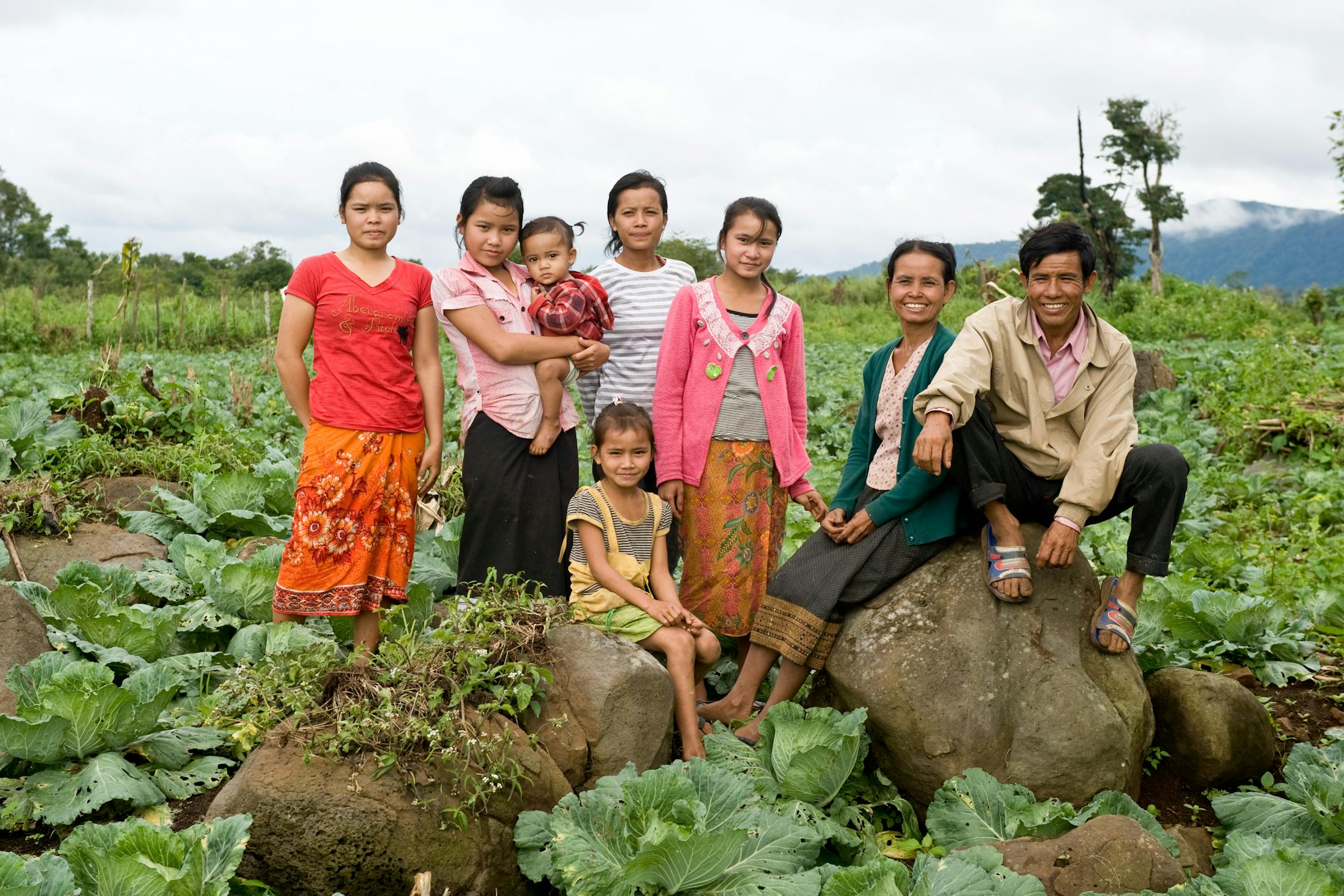

1. No poverty
While extreme poverty has eased considerably since 1990, pockets of the worst forms of poverty persist. Ending poverty requires universal social protection systems aimed at safeguarding all individuals throughout the life cycle. It also requires targeted measures to reduce vulnerability to disasters and to address specific underserved geographic areas within each country.
Read our stories to learn more about SDG Goal 1: No poverty
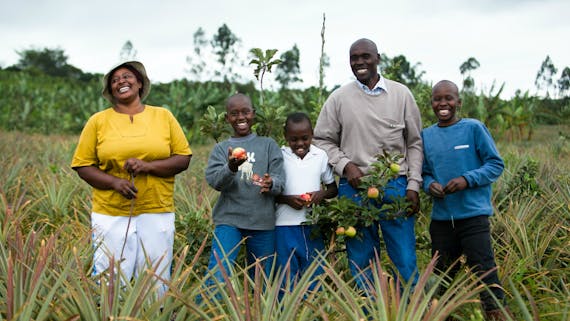
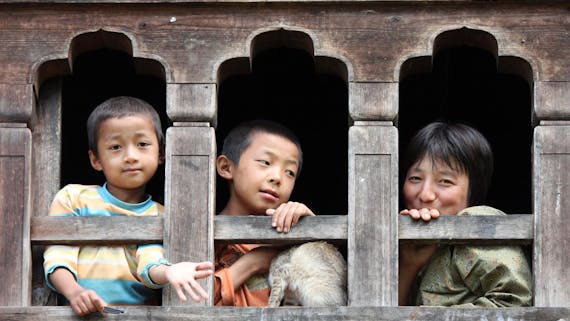
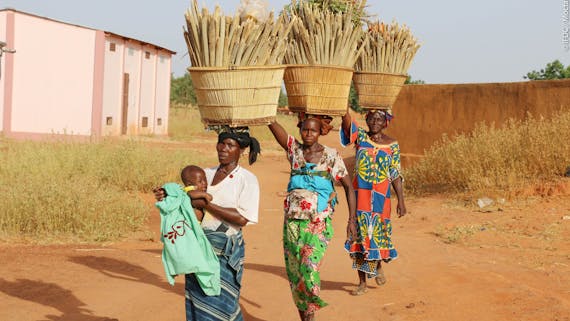
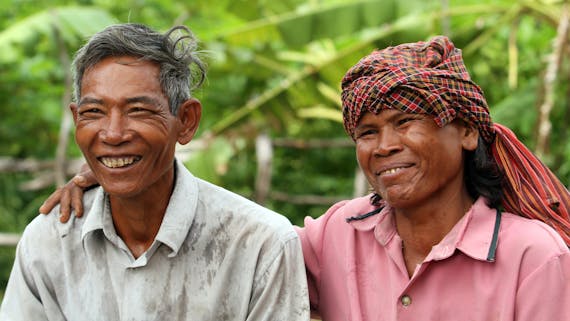
To adopt SDG 1 No poverty, in support of the 17 Sustainable Development Goals, please contact us at partners@eco-business.com
Adopt this goalNews

Policy & Finance
How microloans exacerbate deforestation in Cambodia
Cambodia’s reliance on microloans, long touted as a way to reduce poverty, belies concerns over debt-fuelled deforestation.

An analysis of public health data in Cambodia has found increased rates of malnutrition among children born in areas where deforestation had recently occurred.

Problematic switches to shrimp farming in areas of rising salinity in India and Bangladesh underline the need for political reform.

Policy & Finance
Don’t forget women in new UN climate fund, policymakers urged
The loss and damage fund's success hinges on women's participation and recognising their uneven climate burden, rights groups say.
Policy & Finance
Rain check: Climate change hits vulnerable Indonesian trans women
Opinion

Policy & Finance
The World Bank and IMF must put a value on clean air
Air pollution is a 'silent killer', say former New Zealand PM and former WHO chief scientist.

Food & Agriculture
Women bear the brunt of Asia’s climate failures
What does the future hold for the millions of women left to work in Asia's agriculture sector battling a climate in collapse?

Policy & Finance
Here’s how to boost gender equality and climate action together
Work must continue beyond the two weeks in Dubai to drive a gender-responsive transition, writes COP28's Razan Al Mubarak in her post-COP28 reflection. Improving data, finance and creating work opportunities for women should be prioritised.

Policy & Finance
My country needs climate finance now to face difficult years ahead
Bangladesh needs international support to protect its people from worsening climate change impacts and build out renewable energy.
Carbon & Climate
How to salvage COP28
Carbon & Climate
Gender justice is climate justice
Carbon & Climate
Exploring the intersection of business and our ecology
Videos

EB Studio
What has been the effect of this agribusiness company's dual-income policy on the households of its Indonesian workers?

Food & Agriculture
For Southeast Asia’s migrant fishers, modern slavery is still alive on the high seas
On International Human Rights Day, Greenpeace releases shocking testimonies from Southeast Asian migrants working on board foreign fishing vessels, plying the remote waters to meet Asia's surging demand for seafood.

The Philippine government has begun the process of relocating more than 200,000 families living along waterways to restore Manila Bay, the main body of water in the capital.
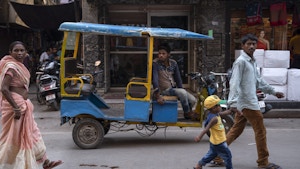
With a vision to end the drudgery of manual rickshaw pulling, social enterprise SMV Green is also helping restore clean air in one of India's most polluted cities through electric rickshaws.
Podcasts

Carbon & Climate
Protecting 30 per cent of the ocean by 2030: Mission impossible?
EB Studio
Eco-Business talks to 'Aulani Wilhelm of Conservation International about why a plan to protect the ocean is critical, and why it might just work.

The World Economic Forum – best known for its Annual Meeting in Davos since 1971 – has been a dynamic platform bringing together the best in business, politics and society to shape global industry agendas. How is WEF helping to shape China’s economic goals alongside its environmental and societal priorities?

Food & Agriculture
Can plant-based diets save the planet?
Humanity and the planet are suffering from a serious case of food poisoning. Eco-Business spoke to Brent Loken, WWF's global lead food scientist, about how changes to our diet can help fix our broken food system, and restore our health and the planet's strained ecosystems.

Policy & Finance
Mining and the cost of the energy transition
EB Studio
Mining can come at great environmental cost, but is necessary to fuel the energy transition. Michael Salvatico from Trucost tells the Eco-Business podcast about the risk and opportunity confronting Australia's mining sector — and what it could mean for Asia Pacific.
























